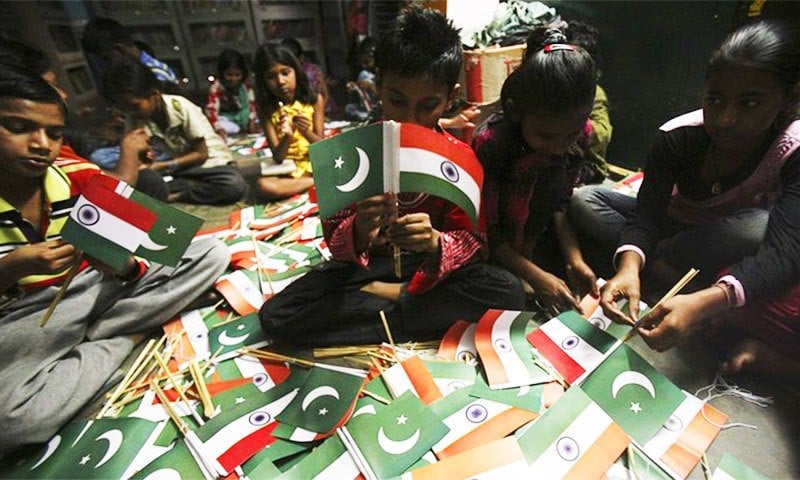
It is it vital for cultural exchanges to continue between the two countries

February 14, a day traditionally associated with love, was marked with agony for the people of Pakistan, India and Kashmir.
Like everything else, this fresh crisis between the two neighbouring countries had an impact on artistes as well.
Indian lyricist, Javed Akhtar and his wife Shabana Azmi, cancelled their trip to Karachi for a literary festival; director Nandita Das had to pull out of the recently concluded Lahore Literary Festival. There were talks of halting all cultural exchanges between India and Pakistan in the wake of the attack.
A response that is understandable, as the artistes are expected to reflect on the times they live in. That said, artistes are also in a unique position to play an important role in times of conflict, highlighting alternative narratives and a diversity of voices.
In regions suffering from long-lasting conflicts, cultural exchanges could help prevent the conflicts from escalating further, by allowing a people-to-people interaction. But the fact remains, given the less-than-ideal current situation in Pakistan and India, is continuation of cultural exchanges still a possibility?
Activist, theatre director, and dancer, Sheema Kermani, who also runs Tehreek-e-Niswan in Karachi, recently released a peace appeal to artists and citizens of India and Pakistan to "rise above warmongering and raise their voices for love and peace between India and Pakistan".
While talking to TNS she says, "When the situation is tense, there is all the more reason for cultural exchanges to take place because art and artistes propagate messages of peace and love. Of course, there are difficulties but we can try to overcome them."
Delhi-based filmmaker, Harsh Narayan, who works on South Asian Cinema, Art & Creative Collaborations says, "Art, culture, music and cinema have always been the only ray of hope, in the darkest of times. Ideally, during these times, an artiste’s responsibility becomes more eminent in order to bring sanity back into the social conscience."
However, in war-like conditions, he says, "the cultural exchange between the two nations is near to impossible; the only route that seems possible is the holding of cultural conventions in a third country, which may help ease the climate of hostility and create a more conducive atmosphere for understanding."
However, even if cultural exchanges between the two countries do continue somehow, there are some risks that need to be dealt with. For example, it needs to be assessed whether these exchanges can remain neutral under adverse conditions -- which is a consistent political problem. Participating artistes may also run the risk of getting involved in the conflict. What can be done in order to mitigate these inherent risks, if anything?
Also read: Unfavoured partners
According to journalist, artist and filmmaker, Beena Sarwar, there’s no absolute way to mitigate these risks except by staying completely away. However, Sarwar, who is also the current Pakistan editor of the Aman ki Asha initiative, adds that despite all risks, artistes across the border have always collaborated and will continue to do so. "As artistes we have to speak up for fundamental rights and liberties and condemn violence whether it is committed by our ‘own’ people or ‘others’ -- because at the end of the day, we are human beings first. As Sahir Ludhianvi wrote, Khoon apna ho ya paraya, nasl-e-Adam ka khoon hai akhir (Blood, whether your own or a stranger’s, is after all the blood of Adam’s descendants)."
It is hard to assess the overall effectiveness of cultural exchanges for peace building, as it requires a long-term perspective. However, art and artistes are inherently equipped with the power to bring even the worst of enemies together and make them tolerant of differences and eventually, of one another. As Kermani puts it, "As an artiste I have no country, as an artiste my country is the whole world".